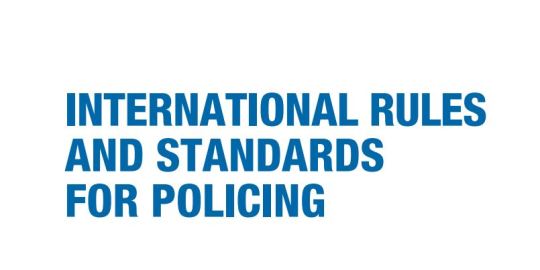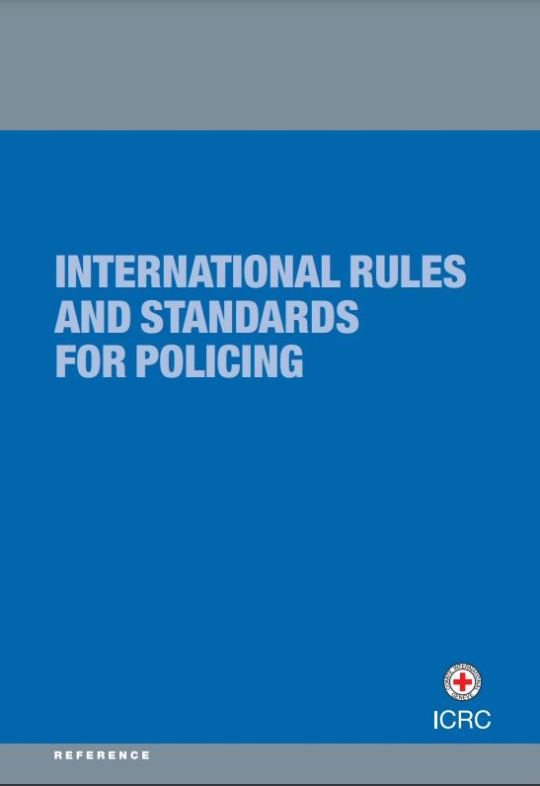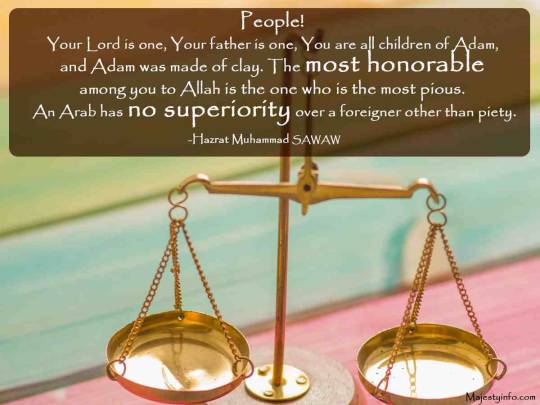#Impartiality
Text
Upholding the Rule of Law:
Striving for Equality and Justice
In a just and democratic society, the rule of law stands as the cornerstone of fairness, ensuring that every individual, regardless of their position or power, is subject to the same legal standards. However, recent concerns about disparities in the application of the law have sparked discussions on the need to address any flaws in the system. In this blog post, we will explore the significance of the rule of law and its impact on societal trust, emphasizing the importance of upholding equality and justice for all.
The Rule of Law: An Unwavering Principle
The rule of law is not a mere catchphrase; it is a fundamental principle that underpins the functioning of democratic societies. At its core, the rule of law dictates that the law should be applied uniformly and consistently, without discrimination or favoritism. It ensures that no one, regardless of their status or influence, is above the law, and everyone is held accountable for their actions.
Challenges to the Rule of Law
While the rule of law is a guiding principle, its application can sometimes be influenced by power dynamics, political considerations, or disparities in resources. Such challenges can lead to perceptions that there are "two standards of law"—one for the powerful and privileged and another for the marginalized and less fortunate. When this happens, the very essence of justice is compromised.
The Erosion of Public Trust
When the rule of law appears to be inconsistent or biased, it erodes public trust in the legal system and institutions. Citizens lose faith in their ability to seek justice, and a sense of injustice permeates the collective conscience. This loss of trust can have far-reaching consequences, including decreased civic engagement and an increase in corruption and social unrest.
Addressing Flaws and Ensuring Equality
To maintain the integrity of the rule of law, it is crucial to identify and address any flaws in its application. This involves empowering an independent judiciary that can impartially interpret and enforce laws. Additionally, transparency in legal proceedings is essential to building trust and instilling confidence in the fairness of the system.
Promoting Access to Justice
A key aspect of upholding the rule of law is ensuring that all individuals have equal access to justice. Legal assistance and representation should not be limited to those with resources; rather, it should be accessible to everyone, regardless of their economic background. Equal access to justice enhances the legitimacy of the legal system and safeguards human rights.
Individual Commitment to Justice
Upholding the rule of law requires the commitment of each citizen to stand for justice and fairness. Civic engagement, public awareness, and holding public officials accountable are vital in safeguarding the principles of the rule of law. By advocating for a just and equitable society, individuals can collectively influence positive change.
The rule of law is a powerful concept that ensures a level playing field for all individuals within a democratic society. Striving for equality and justice under the law is an ongoing effort that demands the commitment of both citizens and institutions. By addressing any flaws in the application of the law and promoting transparency, accessibility, and impartiality, we can reinforce the rule of law and create a society where justice prevails for all, regardless of their status or influence. Let us unite in our pursuit of a fair and just world, upholding the principle that no one is above the law.
#RuleOfLaw#Equality#JusticeForAll#UpholdingJustice#Impartiality#Fairness#TrustInLaw#CivicEngagement#AccessToJustice#TransparencyInLaw#LegalSystem#Accountability#HumanRights#Democracy#Inclusivity#SocialJustice#PublicTrust#EqualAccessToJustice#LegalReform#SafeguardingRights
31 notes
·
View notes
Text

Love Your Enemies
43 "You have heard that it was said, 'Love your neighbor, and hate your enemy.' 44 But I tell you, love your enemies, and pray for those who persecute you, 45 that you may be children of your Father who is in heaven. For he makes his sun to rise on the evil and the good, and sends rain on the just and the unjust.
— Matthew 5:43-45 | New Heart English Bible (NHEB)
The New Heart English Bible is in the public domain.
Cross References: Leviticus 19:18; Deuteronomy 23:3; 1 Samuel 24:17; Proverbs 19:11; Proverbs 25:21; Jeremiah 5:24; Matthew 5:9; Matthew 5:21; Matthew 5:27; Luke 6:27-28; Luke 6:35; Acts 14:17; 1 John 4:21
#children of God#love#enemies#impartiality#Matthew 5:43-45#Gospel of Matthew#New Testament#NHEB#New Heart English Bible
16 notes
·
View notes
Text
God giving the people of Israel the land of Canaan: God's talk with the people of Israel before the possession of the land.
So, I opened my Bible today, intending to read a Psalm from the book of Psalms however when I opened my Bible I saw that a couple of pages were folded (and that's one thing that I don't like). So I unfolded the pages and it was the book of Deuteronomy; specifically chapters 7 - 9. Nevertheless, I briefly read over those chapters and it's beautiful, it's amazing. Those chapters told me about how YHWH God; He was speaking to the people of Israel. . . Telling them about the nations of people He would drive out of the land He was giving to them, His own, special people chosen from all the people on the earth (Deut. 7:6). He tells them why they were chosen and saved from their enemies (Deut. 7:7-8). Before chapter 7, in chapter 6 there's a warning against disobedience and then in chapter 7 as well, there's being told the blessings of obedience to YHWH God. God speaks to them about how He took care of them when they dwelled in the desert for 40 years (because of their disobedience). Even then, He took care of them, protected them. God goes on to tell them the reasons He's giving that land to them (Deut. 9:4-5). Regardless of them having been a stubborn people (Deut. 9:6) He was still giving the land to them because of the promise He made. Regardless of how angry they made God in the desert & rebelled against Him (Deut. 9:7); even at Mount Sinai (Deut. 9:8). Regardless of all of that, this shows me how faithful, merciful and true God is and that those characteristics of Him doesn't depend on the people but are a reflection of His nature. God truly is impartial; that was one of the points I wanted to make with this post. The other is this: regardless of the current state of Israel and your view on whether they are the true Israel or not, the people of Israel will all be saved by God and God will defeat all their enemies. . .not because of who they are but because of WHO GOD IS & THE PROMISES HE MADE. So please, bear this in mind.
Ps. The church is not Israel.
#christianity#christblr#christian#jesus christ#christian faith#jesus#god#christian blog#scripture#bibleverse#israel#YHWH#promises#faithfulness#love#impartiality
16 notes
·
View notes
Text
and love, for others’ sake that springs,
brings half their charm to lovely things.
— Impartiality, James Russell Lowell
#txt#poetry#poemblr#poem#impartiality#james russell lowell#love#love poem#poems of tumblr#poems about love#lovely#quotes#quoteblr#quoteoftheday#beautiful quote#love quote
5 notes
·
View notes
Text

9 notes
·
View notes
Text
Anon wrote: Hey MBTI notes, ESTP woman here looking for some perspective. I have an ENFJ coworker who is kind but seems to expect way too much of me. She will do things like demand I participate in some event or another, and if I say no she gets passive aggressive or loosely implies I’m a bad person for not wanting to do her flavor of activism. I find that the events she goes to feel performative to me - like mosh pits to one up each other morally. I already go out of my way to donate my money to causes I believe in and do volunteer jobs outside of work. And so I feel very annoyed with this woman when she implies I’m selfish for not engaging in her personal idea of what being a good person means.
Another issue I face with her is that she repeatedly has commentary to make about my body or food choices, which I wouldn’t normally have an issue with but the way in which she speaks to me is condescending. Like telling me to eat more or that I look unwell, she knows I had lost a substantial amount of weight and that I have insecurities due to being heavy when younger. But I’m happy with my appearance now so I don’t listen to her trying to insinuate I have a problem, no one else speaks this way to me.
So far I have told her I’m not interested in participating in events she goes to, and that my body isn’t her concern. That has worked but she will just say things adjacent to those subjects now, like mentioning my clothing instead of my body for instance or inviting via e-mail lol. I’m just generally not interested in speaking to her because I don’t think it’s a healthy dynamic for either of us, we are frankly acquaintances and she has tried to control me about 500 different times.
I used to deal with Se-Fe loop and Ni grip when faced with rejection or failure, and so I’d focus too much on the dynamics of ‘how to be a good person’(very abstract and usually unfruitful conclusions other than just being kind) and can become a bit paranoid about what others think of me since I don’t have pristine social/moral confidence, so the pressure she’s putting is definitely not conducive to a life well lived for me. I just try to brush it off but I’m not interested in hearing about my body or problems from another person when I can already scrutinize myself if I wanted to. Any practical advice on how to further deal?
***********************
Given that her behavior exhibits some "mean girl" qualities, it's hard to say whether she would be capable of a mature conversation. In a personal relationship, you communicate about the problem like adults, try to work it out together, and decide what to do together. In a work relationship, there should be a healthy boundary between personal and professional. Sometimes, there are weird power dynamics that make it dangerous to bring up personal issues in the workplace. Your options will depend on several factors:
1) Can Se+Ti work it out? Instead of interpreting her behavior as condescending, controlling, or {insert negative adjective}, why not take her purely at face value? Examples: If she promotes her flavor of activism, take it as a friendly suggestion (based on what she believes is her own authoritative knowledge) and nothing more. If she comments on your body, take it as a show of care/concern for your health/well-being and nothing more. If she expects more of you than you believe is warranted, treat it merely as constructive feedback (to be evaluated and accepted/rejected as you see fit) and nothing more.
You can take people's words as literal and sincere, or you can try to read between the lines and look for hidden meanings. Reading too much into things isn't going to reveal anything useful when what you're actually doing is unconsciously dredging up your past ego dramas (a symptom of Ni grip). The main point is that we all have cognitive biases that prime us to misinterpret information. When you've had a negative past experience with something, those memories make you highly sensitive to any information pertaining to it, and this easily morphs into a personal "issue" (aka "hangup").
Examples: If you've struggled with weight your whole life, you will of course be highly sensitive to weight comments, with a tendency to interpret them in a negative light. If you suffer from social anxiety due to having been rejected by your peers in adolescence, you'll have a tendency to misinterpret people's neutral facial expressions as angry or disapproving.
The human mind is littered with these kinds of biases because we are simply too good at learning from past experience. The question is: Are you 100% certain that you have always interpreted her behavior correctly? Impartiality is one of the key aspects of Ti development. Having mature Ti means that, when making judgments and decisions, you're able to acknowledge biases (aka bullshit) and focus solely on the content that is most relevant. Regardless of who is speaking and why, it should be more important to you whether what they say is factual/relevant to the situation. If what she says is false or irrelevant, what reason do you have to dwell on it? At that point, you're making the choice to dwell because you have ego drama going on, right? Healthy Se should help you quickly move on to something more interesting.
When I was very little, I used to complain about other kids teasing me, even when it wasn't malicious. My mother would say something to the extent of, "People talk shit all the time but it's your choice to eat it up. Are you gonna be a shit eater?" I didn't understand the truth of this until later in life, lol. A person can't get under your skin unless there is a sore spot under there that you don't want them to press on. In development terms, the more you refuse to confront a sore spot, the more you unconsciously attract the very people capable of exposing it. Due to your resistance, those seemingly "annoying" people are the only means left to you for becoming more aware of the problem and the need to resolve it.
Self-responsibility is another key tenet of Ti development. The first step to becoming less sensitive about your sore spots is to take full ownership of them: i) acknowledge that your mind is within your power to control, and ii) when your sore spots produce a negative effect, the onus is on you to learn how to get them under control. To your credit, you've been working on your loop/grip issues, but it sounds like you still have some work to do.
2) Can Fe work it out? Dominant Fe is highly motivated to form a closer relationship with people, so, to some extent, she can't help herself - it would be like asking a bird not to chirp. Because Fe is lower in your stack, there is a mismatch in beliefs about how much personal space one should be entitled to. This is a legitimate difference between FJ and TP that should be given acceptance and understanding. In a healthy relationship, both parties would compromise and try to be respectful of the other's preference.
As it stands, she wants to get closer than you are comfortable with. Do you fault her for triggering your insecurities? Sure, her words don't help matters, but she doesn't know the full extent of your personal issues. If she were a friend, you'd level with her and hopefully she'd understand and back off. But she's not a friend and perhaps her comments are meant to be probing to see where your personal issues lie, which is a natural step in the process of forming a new relationship. Perhaps she feels as though she's been unsuccessful at bonding with you and now she's resorting to immature methods of getting to you because she has taken your "rejection" too personally. That's her own baggage.
An important part of having healthy and mature Fe is nurturing empathy and magnanimity: Try to rise above pettiness and understand what people really need, underneath all the emotional baggage. You could make the choice to be understanding and give her the benefit of the doubt. Assume that her main motivation isn't coming from an evil place but, rather, a place of wanting to develop a relationship with you... despite choosing the wrong methods.
To be clear, it's not your duty to be her friend. But, if you acknowledge that a like-minded friend is probably what she's really after, you'd be more flattered than angry, and you'd be able to approach her with a less defensive/hostile mindset, which should help tamp down the tension in the relationship. The less you come off as "rejecting" in her eyes, the less compelled she will feel to prove anything. If she is indeed creating a drama out of her failure to form a relationship with you, the more you demonize her, react to her provocations, and feed into her suspicions, the harder she'll come at you. Sometimes, no response or an indifferent shrug works better than a sword at repelling an unwanted advance.
3) Can you set better boundaries? The obvious way is to avoid interacting with her, but that might not always be possible when you share the same social spaces. You've set boundaries to some extent by pushing back whenever you think she's being too inappropriate. If she's actually just a bully underneath it all (I can't make this judgment based on such limited information), attempts to be diplomatic may just be taken as participation in her mind games, in which case, bluntness could be more effective.
Let's say you push back exactly as hard as you wish to, what would the social consequences be and could you bear them? If you don't care about whether she likes you and she doesn't have the power/inclination to do any real harm to you, tell her to keep out of your business in no uncertain terms. Be firm but not mean (by avoiding personal attacks). However, if you don't want to have her ire hanging over you and/or you have reason to believe she could make your life difficult, then perhaps the first two options are the way to go. Use your best judgment.
#estp#estp relationships#auxiliary ti#tertiary fe#impartiality#critical thinking#self responsibility#empathy#magnanimity#boundaries#workplace#ask
22 notes
·
View notes
Text
youtube
Funky Fever - Jay Mitchell (Impartiality, 1975)
#Funky Fever#G.B.I. Recording Co. Ltd.#Jay Mitchel#Impartiality#1975#Soul#Soul Music#Soul Music Songs#Music#Music Songs#Funk#Youtube
9 notes
·
View notes
Text
Adopt the International rules and standards for policing.

The overall objective is to promote respect for the law that protects people in such circumstances.
The United Nations was created in 1945 in order to
promote and maintain peace and security. Its founding
instrument is the Charter of the United Nations (UN Charter).
This document contains an important commitment to
human rights in Article 55.
Three major instruments that codified human rights at the
universal level together form what is often referred to today
as the International Bill of Human Rights:
The Universal Declaration of Human Rights (UDHR), which was adopted by the General Assembly of the United Nations in 1948;
The International Covenant on Economic, Social and Cultural Rights, which was adopted in 1966, and its Optional Protocol of 2008;
The International Covenant on Civil and Political Rights, which was adopted in 1966, and its two Optional Protocols.
The UDHR had a major impact on subsequent universal and
regional human rights treaties as well as on national constitutions and other laws. As a consequence, there are a number of provisions that can today be considered customary law, e.g. the prohibition of torture and other forms of ill-treatment, the prohibition of racial discrimination and the prohibition of slavery. Following the International Bill of Human Rights, a number of treaties were drafted that dealt with specific topics. They include the following:
International Convention on the Elimination of All Forms of Racial Discrimination (CERD);
Convention on the Elimination of All Forms of Discrimination against Women (CEDAW) and its Optional Protocol;
Convention against Torture and Other Cruel, Inhuman or Degrading Treatment or Punishment (CAT) and its Optional Protocol (OPCAT);
Convention on the Rights of the Child (CRC) and its Optional Protocols on the involvement of children in Charter of the United Nations, Article 55 “The United Nations shall promote […] universal respect for, and observance of, human rights and fundamental freedoms for all without distinction as to race, sex, language, or religion.”
International law on armed conflict and on the sale of children, child prostitution and child pornography.
International human rights treaties that are binding on all States Parties (and their agents) are increasingly complemented by soft law documents that provide guidance and establish more detailed human rights standards. In addition to the two soft law documents already mentioned (CCLEO and BPUFF), the following soft law documents, are of particular relevance to law enforcement officials:
Standard Minimum Rules for the Treatment of Prisoners (SMR);
Body of Principles for the Protection of All Persons under Any Form of Detention or Imprisonment;
Declaration of Basic Principles of Justice for Victims of Crime and Abuse of Power (Victims Declaration)

#International law#international human rights law#law enforcement#law#enforcement agencies#armed conflict#situation of violence#protectunstaff#unpersonnel#unstaff#Humanity#impartiality#neutrality#independence#voluntary service#unity#universality#humanitarian organizations#law enforcement organizations#International human rights treaties
0 notes
Text
You Have
You will begin noticing the actions/reactions from yourself and those around you.
You Have…
A soul level person can maintain the ‘observer’ God like view of self and others by staying about a foot above the head and just watching whatever ego does, and what other people do in response, from above, in an impartial non judgmental way.
View On WordPress
0 notes
Text

NO RESPECT OF PERSONS (IMPARTIALITY) -- KJV (King James Version) Bible Verse List
Visit https://www.billkochman.com/VerseLists/ to see more.
"Ye shall do no unrighteousness in judgment: thou shalt not respect the person of the poor, nor honour the person of the mighty: but in righteousness shalt thou judge thy neighbour."
Leviticus 19:15, KJV
"Ye shall not respect persons in judgment; but ye shall hear the small as well as the great; ye shall not be afraid of the face of man; for the judgment is God's: and the cause that is too hard for you, bring it unto me, and I will hear it."
Deuteronomy 1:17, KJV
"Thou shalt not wrest judgment; thou shalt not respect persons, neither take a gift: for a gift doth blind the eyes of the wise, and pervert the words of the righteous."
Deuteronomy 16:19, KJV
"Wherefore now let the fear of the LORD be upon you; take heed and do it: for there is no iniquity with the LORD our God, nor respect of persons, nor taking of gifts."
2 Chronicles 19:7, KJV
"These things also belong to the wise. It is not good to have respect of persons in judgment."
Proverbs 24:23, KJV
"To have respect of persons is not good: for for a piece of bread that man will transgress."
Proverbs 28:21, KJV
"Then Peter opened his mouth, and said, Of a truth I perceive that God is no respecter of persons:"
Acts 10:34, KJV
"For there is no respect of persons with God."
Romans 2:11, KJV
"And, ye masters, do the same things unto them, forbearing threatening: knowing that your Master also is in heaven; neither is there respect of persons with him."
Ephesians 6:9, KJV
"But he that doeth wrong shall receive for the wrong which he hath done: and there is no respect of persons."
Colossians 3:25, KJV
"And if ye call on the Father, who without respect of persons judgeth according to every man's work, pass the time of your sojourning here in fear:"
1 Peter 1:17, KJV
"My brethren, have not the faith of our Lord Jesus Christ, the Lord of glory, with respect of persons. For if there come unto your assembly a man with a gold ring, in goodly apparel, and there come in also a poor man in vile raiment; And ye have respect to him that weareth the gay clothing, and say unto him, Sit thou here in a good place; and say to the poor, Stand thou there, or sit here under my footstool: Are ye not then partial in yourselves, and are become judges of evil thoughts? Hearken, my beloved brethren, Hath not God chosen the poor of this world rich in faith, and heirs of the kingdom which he hath promised to them that love him? But ye have despised the poor. Do not rich men oppress you, and draw you before the judgment seats? Do not they blaspheme that worthy name by the which ye are called? If ye fulfil the royal law according to the scripture, Thou shalt love thy neighbour as thyself, ye do well: But if ye have respect to persons, ye commit sin, and are convinced of the law as transgressors."
James 2:1-9, KJV
If you would like more info regarding the origin of these KJV Bible verse lists, go to https://www.billkochman.com/VerseLists/. Thank-you!
https://www.billkochman.com/Blog/index.php/no-respect-of-persons-impartiality-kjv-king-james-version-bible-verse-list/?feed_id=113234&NO%20RESPECT%20OF%20PERSONS%20%28IMPARTIALITY%29%20--%20KJV%20%28King%20James%20Version%29%20Bible%20Verse%20List
#All_Posts#Bible_Verse_Lists#bible#bible_study#bill_kochman#bills_bible_basics#impartial#impartiality#king_james_version#kjv#list#no_respect_of_persons#no_respecter#not_a_respecter#respect_of_persons#scripture#scriptures#topical#verse#verses
1 note
·
View note
Photo

The True Path of Righteousness
Then you will understand righteousness and justice
and uprightness—every good course—
— Proverbs 2:9 | Lexham English Bible (LEB)
Lexham English Bible 2012 by Logos Bible Software. Lexham is a registered trademark of Logos Bible Software.
Cross References: Proverbs 1:3; Proverbs 4:18; Proverbs 8:20; Proverbs 28:5
#fairness#impartiality#evenhandedness#Proverbs 2:9#Book of Proverbs#Old Testament#LEB#Lexham English Bible#Logos Bible Software
9 notes
·
View notes
Text
Impartiality Solutions²!
Who might know you better than you? 😉
Can you yourself be impartial?
“Not all professors park their political opinions at the door before entering the classroom,” said Prof. M.C. who teaches comparative political systems, explaining that that he always ask his students to presume good intent in others, even during disagreement.
Definitely, it is not easy to be impartial. It is as if you were…

View On WordPress
#Bias#Bloggers#Children#Discrimination#Dr. Sophie Essay#Impartiality#Inclination#Media#People#Students#Teachers#Writers
0 notes
Text
Analysis of Barrister Monday Ubani's Insights on the Appointment of the EFCC Chairman.
In a recent interview, Barrister Monday Onyekachi Ubani, Special Adviser to the Serving Senate President, provided a comprehensive analysis of the appointment of Mr. Ola Olukoyode as the chairman of the Economic and Financial Crimes Commission (EFCC) in Nigeria. With an emphasis on legal considerations, ethical challenges, and the expectations for the EFCC’s future operations, Barrister Ubani…

View On WordPress
#Anti-Corruption#EFCC (Economic and Financial Crimes Commission)#Ethics in Governance#Governance#Impartiality#Legal Perspective#NIGERIA#Political Landscape#RULE OF LAW#Transparency
0 notes
Text

“Oh, People! Your Lord is one, Your Father is one, You are all children of Adam, and Adam was made of clay. The most honorable among you to Allah is the one who is the most pious. An Arab has no superiority over a foreigner other than piety.” -Hazrat Muhamad SAWAW [Nehjul Fasahat]
For more beautiful quotes please visit:
#islamic quotes#islamic posts#islam#deen#prophet muhammad#quotes#Hadees#Hadith#impartiality#equality#equilibrium#piousness#pious
0 notes
Text
Anon wrote: I wanted to ask about a nagging concern that I've been dealing with. I am an INFJ; I don't know what type my mother is. Lately she's been making a few offhanded comments about what she'd say about me to my (hypothetical) children. I've already told her that I don't want to get married and I don't want to have children. We've had multiple discussions about this, and I've explained my reasons and evolution in thought on this matter…
I used to think I wanted children, but after reflecting on my parental experiences with my father, who's a person who never should have had a child, but did anyway much like many adults (thankfully, I have no siblings; my mother's at least showed love and a willingness to grow), my own personality and life goals, and the factors necessary to raise a child well, I've decided that it's not for me, though I love kids… I've also realized that I don't desire sex or marriage, and that I really want to spend time building community in other ways (I already plan to be actively involved in civic life, both as a part of my career and for fun).
I've explained this to my mother, who I share a close relationship with, and she alternates between being grudgingly accepting, saying I "can't decide when or if it's going to happen" (she believes in fate) and saying that I "need a companion" after she dies (I have also told her that having a spouse and children is no guarantee of having companionship, as seen by the relationship between my father and I). She's said that I can get married when I find someone I like, & not to say that I wouldn't get married like she did (saying that she said that, & then she got married to my father, who was awful to her, rather than thinking about who she would want).
I have experience dating (though she doesn't know that, and I don't think I want to tell her yet) & now I know I don't want to be "in a relationship" because I know myself better, which she's struggled to do her whole life, and she's always admired the fact that I know what I want. I think she always says what's on her mind, not thinking about what we discussed before.
Knowing this, whenever she says these things, I am inclined to ignore her, because I feel like she's not intentionally trying to steamroll my perspective. I am not sure whether I should be calling her out in the moment when she says these things, because sometimes I feel like it sets a bad precedent that I'm agreeing with her, through silence (even if I know what we've spoken about, I can't help but worry she's forgotten what I think).
I'm 24, I know that as an adult, I have control over what I want to do. I may have also scared myself by reading about how other women have been forced or pressured into marriage, & although my mother has told me that this won't happen to me, it's still one of my possibly irrational fears, given that I've already witnessed violence in my home once, & I don't want to be on the other end. I'm trying to do well in school and learn how to drive so I can acquire more independence.
I guess my ultimate question to you is how to deal with this anxiety in a healthy way when my mother says these offhanded hypothetical comments that trigger those anxieties. Should I respond to it, or just ignore it?
***********************
Although you've legally been an adult for quite some time, it seems you still haven't achieved true independence of mind. You still struggle with the teenage mentality of "child vs parent". You seem to think the only two options in life are to either stick with your own viewpoint or lose yourself to someone else's.
What does it mean to be "independent"? In the teenage mind, it means one should have the freedom to be oneself. However, what most teenagers don't realize is that they don't know themselves very well at all. When you don't really know who you are, having "the freedom to be yourself" is often translated as an invitation to be egotistical and self-serving. Blithely ignoring the input of others is one common form of egotism. Teenagers define independence very narrowly as "freedom from the control of others" because all they really want is to have the control, to usurp the power of the adults.
You have to stand firmly in truth in order to assert yourself confidently. When you're not being truthful, deep down, you know you don't have a leg to stand on, and then you are easily threatened and knocked down by anything. To reach important truths, you have to approach learning with humility and impartiality:
be open to hearing all of the relevant information
give fair consideration to every different viewpoint
see beyond attempts to influence and focus solely on the content
construct well-reasoned arguments and draw logical conclusions
make well-informed and rational decisions
Teenagers often have trouble seeing the bigger picture, so they don't realize that impartiality is necessary for making truly independent decisions. In your debates with your mom, you display arrogance rather than humility. You sometimes pretend at impartiality but you're not truly capable of it - a common sign of Ti loop. As soon as her viewpoint differs from yours, you treat it as an attack and immediately launch a counteroffensive. Most significantly, your viewpoint is very much shaped by your past traumas surrounding her decisions, which renders you unable to approach your own decisions objectively.
I have spoken at length before about the boundary problems between parent and child, I suggest you read through those posts. You claim to have a close relationship with her but the "closeness" you describe seems of the unhealthy variety. You don't tell her the things that matter (e.g. your dating experience) and then turn around and expect her to understand you. You don't recognize her right to her own views and opinions, otherwise you wouldn't feel so easily threatened by them. You don't respect her feedback because you desperately want to believe that you really know yourself.
You're not asking the right question. IMO, a better question to ask is: Why do you feel the need to make such hard and firm decisions about your life, to define who you are so narrowly? Do you really think that, at 24, you know everything you need to know about yourself? Do you believe that your view of yourself will never change or evolve with more experience? And even if your view doesn't end up changing, what good reason is there to completely close yourself off to any possibility of change?
A viewpoint is, by definition, just one way of seeing things. A "viewpoint" is not the same thing as an unassailable "fact" - you seem to confuse the two, which is one of the most common critical reasoning errors. The more you shove yourself into a fixed and narrow viewpoint, the more threatened you will feel by any challenge to that viewpoint. You seem to believe that your mom is the cause of your anxiety, but the anxiety is actually a byproduct of your own obstinance.
#infj#infj relationships#ti loop#parent child relationship#independence#impartiality#critical thinking#ask
13 notes
·
View notes
Text

Facts DO Care About Your Feelings - 2 Parts
Zoe Bee
Ben Shapiro’s famous quote, “Facts don’t care about your feelings.” is wrong. Let’s talk about why.
Sources:
—Against the Web: A Cosmopolitan Answer to the New Right – Michael Brooks
—Facts Don’t Care About Your Feelings – Ben Shapiro
—Metaphors We Live By – George Lakoff and Mark Johnson
—Minds Made for Stories – Thomas Newkirk
—The Mismeasure of Man – Stephen Jay Gould
—Moral…
View On WordPress
#affiliatelink#Amazon#anecdotes#atticusgoldfinch#benshapiro#brookeconrad#danielkahneman#data#Educational#factsandlogic#fairtreatmentofdata#georgelakoff#ideology#impartiality#joehumphreys#markjohnson#michaelbrooks#neutrality#objective#objectivity#prejudice#sirkenrobinson#statistics#stories#thebellcurve#thomasnewkirk#video#Videos#williamdavies#zoebee
0 notes